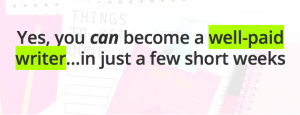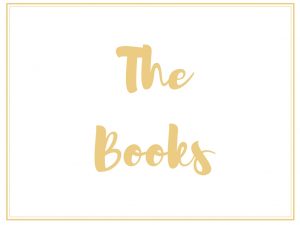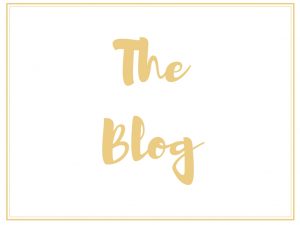How To Be a More Productive Writer

Many of us are striving to be as productive as we can possibly be, but it’s not easy. As a freelance writer who also writes ebooks, and runs a couple of blogs, I’ve had to find ways to become (much) more prolific than I naturally am. Here are a few simple hacks that help me write hundreds of thousands of words a year.

Disclosure: Sometimes my work here (and all around the web) contains affiliate links. Find out what that means here.
Develop Your Writing Rituals
You’ll often hear writers talking about writing routines, and how important it is to maintain one. I’ve found it’s even more important (and ultimately more conducive to productivity) to get writing rituals in place.
Rituals are similar to routines, but are usually more fun, and can include a little variety too. Your writing ritual might include lighting a scented candle, making a cup of herbal tea, putting on your favorite playlist of classical music and offering up a little prayer, affirmation or promise to the universe (“I will write 1000 words before I take a break,” is a good one). Or it might be three cups of strong coffee, a cigarette and Johnny Rotten in the background. Whatever works for you. A ritual is just something that clearly signals to you, and your brain, that this is writing time. No other options.
Writing rituals can be more varied than that, though. Over the years, I’ve made a ritual of free-writing outside in a favorite spot on every sunny day, writing in a favorite coffee shop every Sunday morning, and pouring out my ideas in a ten minute ‘brain dump’ at the end of the day. Rituals can work as ‘anchor points’ in our day or week, when we make the time to do something that contributes to our creativity or writing process, making us more productive over time.
Writers who happen to be fans of Hal Elrod’s book, The Miracle Morning, may be pleased to know he has another book out: The Miracle Morning for Writers: How to Build a Writing Ritual That Increases Your Impact and Your Income.
Focus On A Specialty
Many writers can write about anything and everything, and that’s not a bad thing. But developing a writing specialty will have a positive impact on your productivity. I specialize in family and parenting (I have a degree in Child & Family Studies) and online business (I run one, and have a business degree, too).
When you’re a freelance writer specializing in a particular topic, it’s easier to be productive. You have the specialist knowledge, and the industry contacts, and the go-to resources. You know where to look for a quote, or a statistic, or the results of a study that will back up your points. You have the right vocabulary and context. You often find your research for one article or essay brings forth a multitude of ideas for other articles on the same topic.
When I’m writing about child development, I know whether to look for a quote from Piaget or Bandura. I know my authoritarian parenting style from my authoritative parenting style. I know which books cover the subject areas I’m writing about, and which publications publish the type of article I’m writing. I waste less time on research, finding sources, and marketing.
Even if you’re a fiction writer, specializing can be efficient. If you always write in a particular genre, that’s the genre you want to be reading, researching and monitoring trends in. Hop from one genre to another, and you make life a little harder for yourself.
Writing about lots of different topics can be interesting, stimulating and lucrative. Just be aware that you’ll probably be at your most productive when you pick a specialty and stick with it for a while.
The 90/90/1 Method
I’ve borrowed this method from Robin Sharma, author of The Greatness Guide and The Monk Who Sold His Ferrari. I use it to get super productive on whatever my personal project is at any given time. It’s what has allowed me to write my ebooks and develop my blog, while also churning out freelance writing work on a daily basis.
Sharma suggests that in order to produce an important work of art you need to dedicate 90 minutes a day, for 90 days, to just one thing. I’ve tried it and I agree. Devote the first 90 minutes of your day, every day, for 90 days, to the one thing you want to create in any given quarter. If you haven’t made serious progress on your book, screenplay, or website content by then, I’m going to suggest you’re cheating, at least a little.
If you have something truly epic to produce, that can’t be created in 135 hours of highly focused, dedicated time, you might want to break it into smaller chunks and create several 90 day projects.
Write Distraction Free
It’s an obvious one, but you know what distractions do to your productivity. Turn off your notifications, shut down your social media, close superfluous browser windows, and put your noise cancelling headphones on. Get up early, stay up late, and bribe your family. Do whatever you have to in order to work distraction free as often as possible.
Achieving a state of flow is what makes you truly productive, and this happens when you’re dedicated to working distraction free for big chunks of time. It’s particularly important for your 90 minute, intense, creative project that we mentioned above. There is 90 minutes of broken-up, multi-tasking, on-and-off work, or 90 minutes of flow. There’s a big difference in what you’ll achieve with each tactic.
Keep a Journal
I used to think keeping a journal was a waste of time and a waste of words. Why would I write in a journal when I’m a professional writer who should be writing articles and essays I can sell or publish? Then I gave it a try and felt kind of stupid. It didn’t take me long to realize that journaling the right way creates writing you can use. I journal every day, and I find it generates more ideas for fresh articles, essays, blog posts and pitches than I’ll ever be able to use.
The trick here is to use your journal to list out your thoughts on what you might write, issues you might address, ideas you might incorporate into your writing, or titles you might use for stories and articles.
There are all kinds of journal prompts you can use, but I start each journaling session by listing up to ten possible titles for articles, blog posts or Medium stories. They don’t have to be perfectly honed. In fact they never are, and they always need tweaking before publication. But they are a starting point, and often a very good one. You don’t have to be too hot at math to work out that doing this for just one month will generate around 300 ideas, with very little effort.
I often continue my journaling session by fleshing out one or two of the ideas I’ve come up with. When I come to write these articles up, I’ll be incorporating research, facts, and quotes, but at this point I’m recording my own personal ideas, questions, musings and insights on the topic — the things that will make my finished written piece unique. I’m not the only one who finds journaling helpful. Top Medium writer Benjamin Hardy has also shared how he turns his journal ramblings into viral articles.
Still trying to break into freelance writing? Or up your income as a freelance writer? Check out the Write Your Way To Your First 1K course. Step-by-step training to help you make your first $1000 from your freelance writing.
This article was originally published at TheWritingCooperative.com.






Be the first to comment.